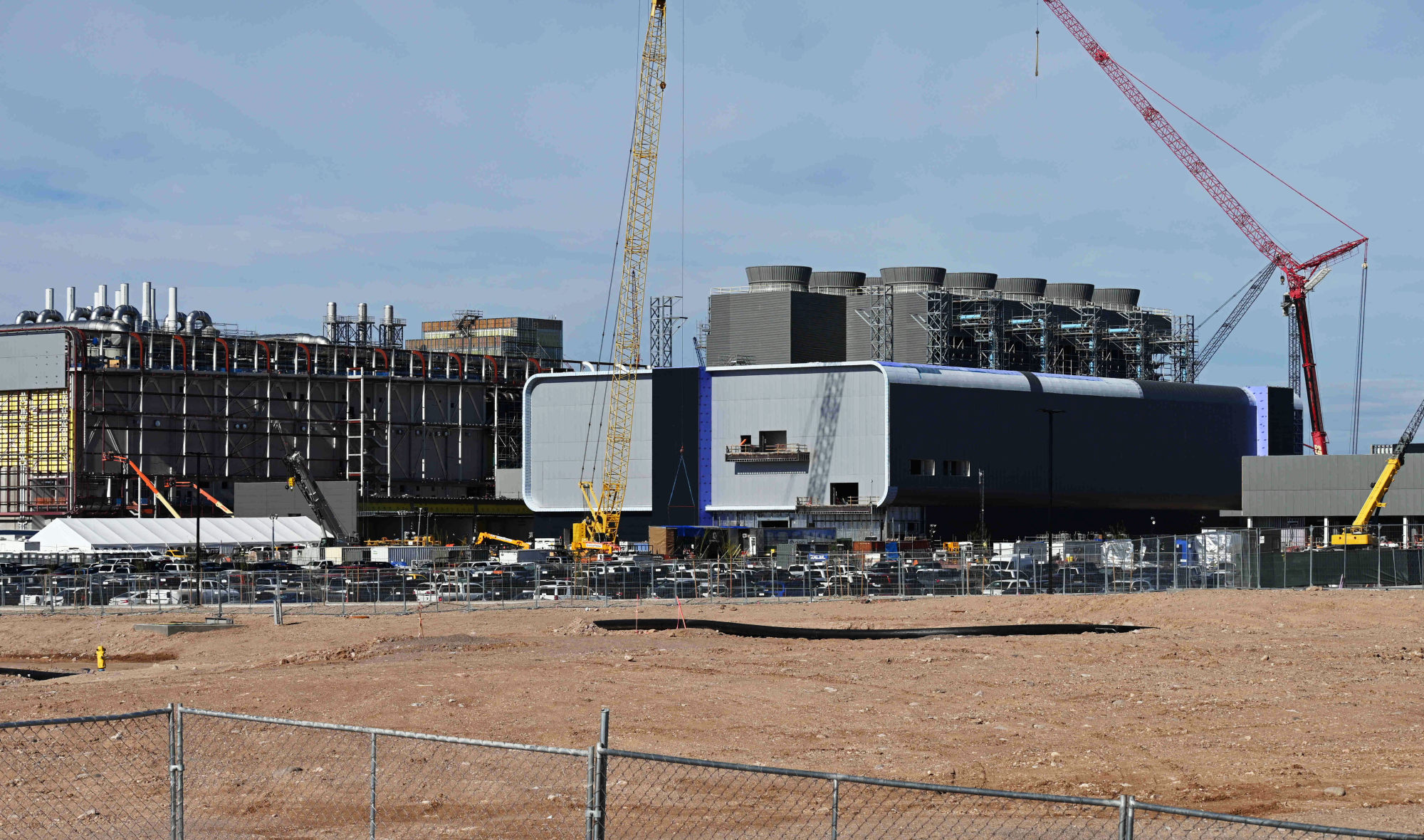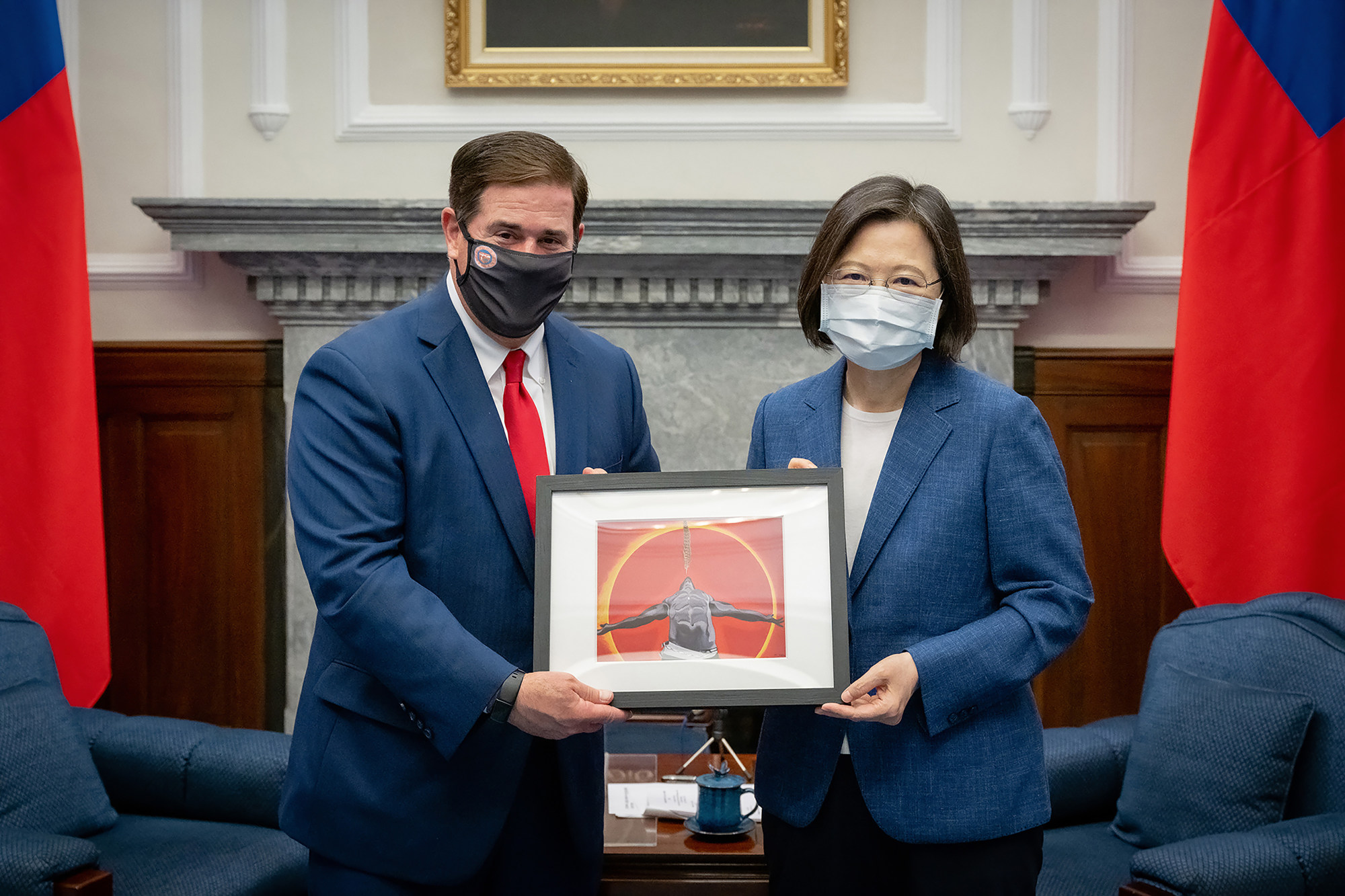
Taiwan-Arizona ties: the history behind TSMC’s decision to build US$12 billion chip plant in southwestern US
- Arizona’s long-standing support for Taiwan, going back to the 1960s, underscores the increasing importance of subnational diplomacy for the self-ruled island
- TSMC likely did not invest in Arizona for political purposes, experts say, but a state’s ties to Beijing could affect Taiwanese business decision-making
But the state has for decades been building close ties with Taiwan, even as it has been middle-of-the-pack among states in taking a hard line against mainland China, illustrating how long-term subnational diplomacy helps Taiwan expand its soft power abroad as Beijing tries to siphon off Taipei’s remaining national allies.
“The previous administration and the current administration both played roles in this process, because it was a multi-year effort,” Chris Camacho, president and CEO of the Greater Phoenix Economic Council (GPEC), which was involved in discussions to bring TSMC to the city, told the Post in January. “That was a part of the discussion to get them to come to the United States, was ensuring that the Chips Act would move forward.”
Since TSMC’s announcement, Phoenix has seen at least 14 other companies, five of them Taiwanese, announce related expansions to the metropolitan area, according to the GPEC. The chip giant’s investment in Arizona is expected to eventually create 4,500 direct jobs, and 7,400 indirect jobs.
While the Arizona expansion came amid intense geopolitical pressure to diversify operations, a “Taiwanese company will never invest money for political purposes”, according to Czeslaw Tubilewicz, co-author of the book The United States’ Subnational Relations with Divided China.
“The fact that [TSMC is] moving to the US speaks volumes, not so much about subnational relations, to be honest, but about a geo strategy and how important chip production is becoming to sovereignty and everything else,” said Tubilewicz, who lectures on international relations at the University of Adelaide in Australia.
Businesses have other concerns, but rising tensions with China have made politics harder for multinational tech giants to ignore. TSMC has reportedly only opened a plant in the US begrudgingly. Analysts have noted that much higher costs in the US make it harder to justify chip manufacturing in the country from a purely economic perspective.

Rivals have also been expanding their chip-making capacity in the US, with investments scattered across the country, from Texas to Idaho to New York. Arizona has long been home to a large semiconductor industry. There have been 10 major private investments in semiconductors and electronics in Arizona since January 2021, more than in any other state, according to data released by the White House.
But Arizona’s steadfast support for Taiwan over the years is a conspicuous differentiator when it comes to courting business from the island. Phoenix was the fifth US city to become a Taipei sister city in 1979, and Arizona was one of the first states to open a trade office there in 1987. That office was closed in 2007, but in March Arizona opened a new trade and investment office.
“Arizona’s partnership with Taiwan extends back decades and continues to have a global impact through the construction of TSMC’s hi-tech semiconductor fabs in Phoenix,” Governor Katie Hobbs said in a statement at the time.
Arizona’s support of Taiwan goes back to the days of Barry Goldwater, an influential senator from the 1950s to 1980s and one-time presidential candidate. Goldwater even went as far as suing the administration of former president Jimmy Carter over the nullification of the treaty with the ROC to open relations with the People’s Republic of China. The Supreme Court dismissed the suit, leaving the question over the constitutionality of Carter’s move unanswered.
This support did not go unrecognised. In 1978, the governor of Taiwan – a former provincial-level position separate from the office of president – acknowledged Goldwater and Dennis DeConcini, Arizona’s other senator at the time, for their support for the ROC, leaving “no doubt that Taiwanese objectives were commercial and political”, Tubilewicz and co-author Natalie Omond wrote in their book on subnational relations.
The state House and Senate in Iowa have introduced 31 resolutions since 2010 showing support for Taiwan regarding a variety of issues – excluding commemorations of specific dates and anniversaries – but none have passed, LegiScan shows. California has only passed two resolutions related to Taiwan in the past decade, both celebrating Taiwanese American Heritage Week.
Oregon, another major market for semiconductor production, has introduced just one resolution on Taiwan in the past decade. The House introduced it last month, but it has not been put up for a vote. In 2013, the state House passed a resolution honouring a former consul general for “deepening the person-to-person exchanges between Oregon and the People’s Republic of China”.
“Even if Oregon wanted to compete [for investment from TSMC], there was no way that anybody in Taiwan would even for a second consider Oregon,” Tubilewicz said.
While traditionally a Republican-leaning state – a position the political party of Donald Trump has seen eroded in recent elections – Arizona has not been as anti-China as it has been pro-Taiwan.
In a 2019 report from Chinese think tank Minzhi International Research Institute and Tsinghua University’s Centre of globalisation Studies, former governor Ducey was one of 17 US governors listed as “friendly to China”. But the only criteria for this assessment were public remarks that these officials had made about China, so the results should be “taken with a grain of salt”, as the Foundation for Defence of Democracies put it.
While Ducey led a trade mission to the country in 2015, economic incentives to cooperate more with China are minimal. It is Arizona’s third-largest trade partner after Canada and Mexico, at US$1.5 billion, but Chinese investment in the state is relatively tiny.
Taiwan, too, has traditionally been a small economic player in Arizona. It employed 300 people there as of 2021, but that will change as TSMC expands operations. The value of Arizona imports from Taiwan nearly doubled last year over 2021, according to data from the US Census Bureau. That made it Arizona’s fastest growing import market, while Arizona was Taiwan’s second-fastest growing export market in the US, after the much smaller market of North Dakota.
Meanwhile, from 2021 to 2022, the value of annual Arizona exports to Taiwan had grown from about 41 per cent of its exports to China to 51 per cent, jumping from US$620.2 million to US$764 million, US Census Bureau data shows.
Still, the relatively little money at stake underscores how the Arizona-Taiwan relationship may be more value-based than anything else.
“It demonstrates the importance of ideational issues,” Tubilewicz said. “Your moral values, your understanding what’s good, what’s bad, is shaping your behaviour.”

During the visit, Tsai told Ducey that Taiwan looks forward to producing “democracy chips” with the US. Ducey, in turn, said “Arizona stands with Taiwan”.
“Ideational aspects do not come from nowhere,” Tubilewicz said. “There must be something unique about Arizonan political culture.”

